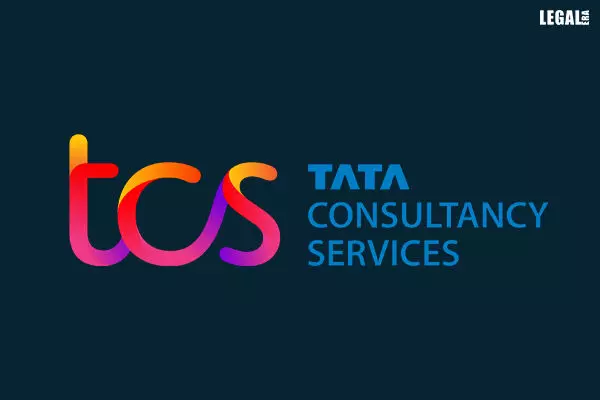- Home
- News
- Articles+
- Aerospace
- AI
- Agriculture
- Alternate Dispute Resolution
- Arbitration & Mediation
- Banking and Finance
- Bankruptcy
- Book Review
- Bribery & Corruption
- Commercial Litigation
- Competition Law
- Conference Reports
- Consumer Products
- Contract
- Corporate Governance
- Corporate Law
- Covid-19
- Cryptocurrency
- Cybersecurity
- Data Protection
- Defence
- Digital Economy
- E-commerce
- Employment Law
- Energy and Natural Resources
- Entertainment and Sports Law
- Environmental Law
- ESG
- FDI
- Food and Beverage
- Gaming
- Health Care
- IBC Diaries
- In Focus
- Inclusion & Diversity
- Insurance Law
- Intellectual Property
- International Law
- IP & Tech Era
- Know the Law
- Labour Laws
- Law & Policy and Regulation
- Litigation
- Litigation Funding
- Manufacturing
- Mergers & Acquisitions
- NFTs
- Privacy
- Private Equity
- Project Finance
- Real Estate
- Risk and Compliance
- Student Corner
- Take On Board
- Tax
- Technology Media and Telecom
- Tributes
- Viewpoint
- Zoom In
- Law Firms
- In-House
- Rankings
- E-Magazine
- Legal Era TV
- Events
- News
- Articles
- Aerospace
- AI
- Agriculture
- Alternate Dispute Resolution
- Arbitration & Mediation
- Banking and Finance
- Bankruptcy
- Book Review
- Bribery & Corruption
- Commercial Litigation
- Competition Law
- Conference Reports
- Consumer Products
- Contract
- Corporate Governance
- Corporate Law
- Covid-19
- Cryptocurrency
- Cybersecurity
- Data Protection
- Defence
- Digital Economy
- E-commerce
- Employment Law
- Energy and Natural Resources
- Entertainment and Sports Law
- Environmental Law
- ESG
- FDI
- Food and Beverage
- Gaming
- Health Care
- IBC Diaries
- In Focus
- Inclusion & Diversity
- Insurance Law
- Intellectual Property
- International Law
- IP & Tech Era
- Know the Law
- Labour Laws
- Law & Policy and Regulation
- Litigation
- Litigation Funding
- Manufacturing
- Mergers & Acquisitions
- NFTs
- Privacy
- Private Equity
- Project Finance
- Real Estate
- Risk and Compliance
- Student Corner
- Take On Board
- Tax
- Technology Media and Telecom
- Tributes
- Viewpoint
- Zoom In
- Law Firms
- In-House
- Rankings
- E-Magazine
- Legal Era TV
- Events
TCS Faces $194.2 Million Fine In US Court For Trade Secret Misappropriation

TCS Faces $194.2 Million Fine In US Court For Trade Secret Misappropriation
Tata Consultancy Services (TCS) has been fined a total of $194.2 million (approximately Rs 1,600 crores) by a US District Court for alleged misappropriation of trade secrets. The fine follows a case brought against TCS by Computer Sciences Corporation (CSC), now part of DXC Technology Company (DXC), over claims of trade secret theft.
In response to the court's decision, TCS disclosed the order in a filing to the Stock Exchange Board of India (SEBI) on the Bombay Stock Exchange (BSE). The company stated its intention to appeal the court order and submit a review petition. According to TCS's filing to SEBI under Regulation 30 of the SEBI (Listing Obligations and Disclosure Requirements) Regulations, 2015:
"We hereby inform you that the Company has received an adverse judgement passed by the United States District Court, Northern District of Texas, Dallas Division, details of which are provided in Annexure A."
TCS remains committed to addressing the legal proceedings through the appellate process as it navigates the implications of the court's ruling.
In a regulatory filing to the Bombay Stock Exchange (BSE), Tata Consultancy Services (TCS) disclosed details regarding the lawsuit brought by Computer Sciences Corporation (CSC)/DXC Technology Company (DXC), alleging misappropriation of its trade secrets:
The court has ordered TCS to pay $56,151,583 in compensatory damages and $112,303,166 in exemplary damages to CSC/DXC. Additionally, TCS is liable for $25,773,576.60 in prejudgment interest up to June 13, 2024. The court also issued injunctions and other relief measures against TCS as part of its ruling.
In response to the court ruling, Tata Consultancy Services (TCS) stated that the judgement will not significantly impact its financials and operations. TCS emphasized that it holds strong arguments in its defense and intends to challenge the ruling through a review petition or appeal to the appropriate court.
According to a filing with the Bombay Stock Exchange (BSE), TCS asserted, "The Company believes that it has strong arguments against the Judgement and is taking necessary steps to protect its interest through review/appeal. The Company believes that the Judgement has no major adverse impact on its financials and operations."
In 2019, Computer Sciences Corporation (CSC), later integrated into DXC, filed a lawsuit against Tata Consultancy Services (TCS), alleging the misuse of its software licensed to a subsidiary of Transamerica. The lawsuit emerged following TCS securing a $2 billion contract with Transamerica the previous year. The complaint claimed that TCS exploited its access to the software, provided to 2,200 Transamerica employees who transitioned to TCS, to gain insights into CSC's software intricacies and develop a competing insurance platform.
The court determined that TCS unlawfully accessed and utilized confidential information from DXC's insurance management software, leading to a $70 million penalty for trade secret misappropriation and an additional $140 million for intentional infringement.
Additionally, Transamerica ended its longstanding agreement with TCS prematurely in June 2023. Subsequent to a legal setback and a claim from Epic Systems, TCS recorded a provision of $125 million in the December quarter.


